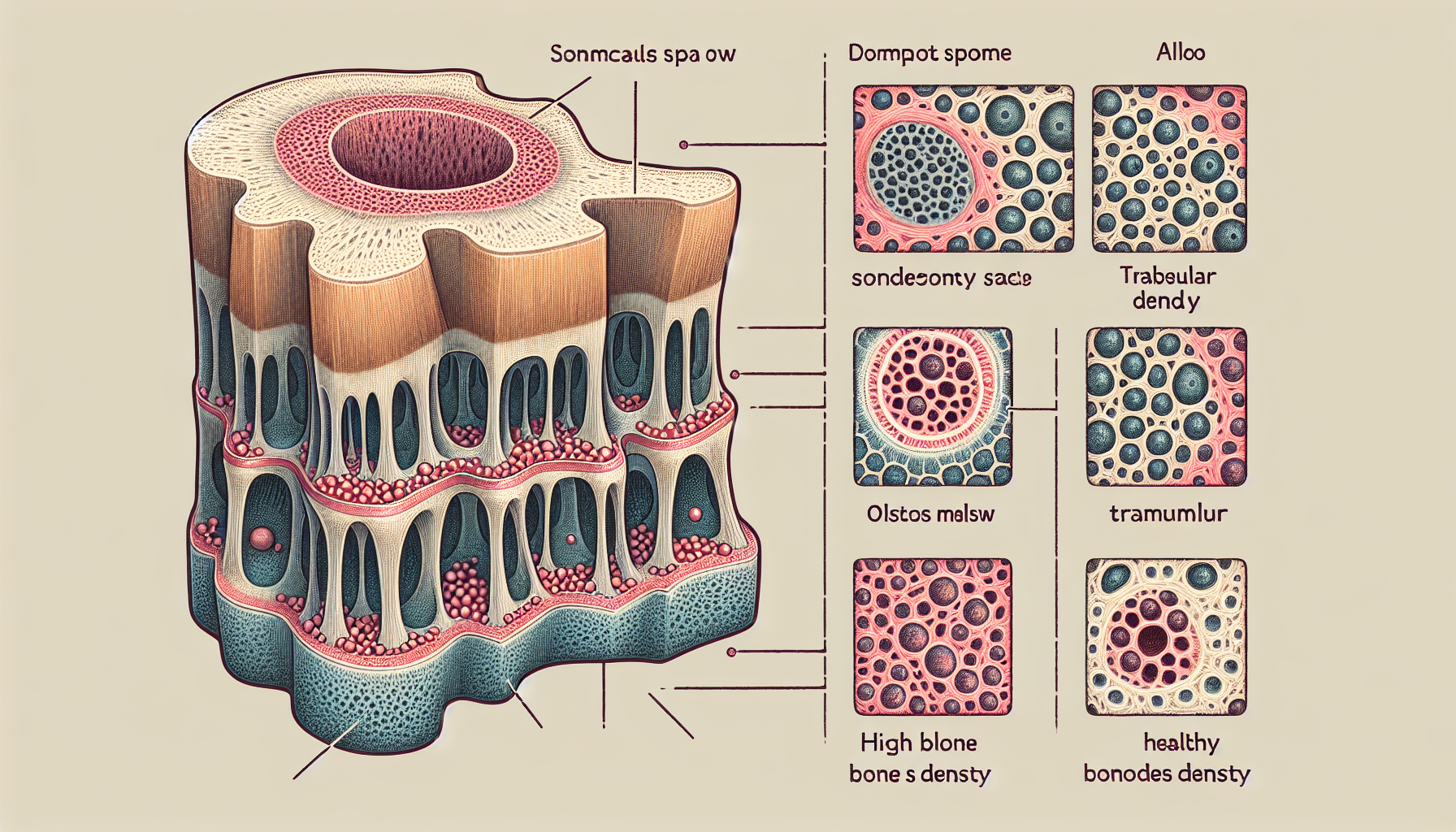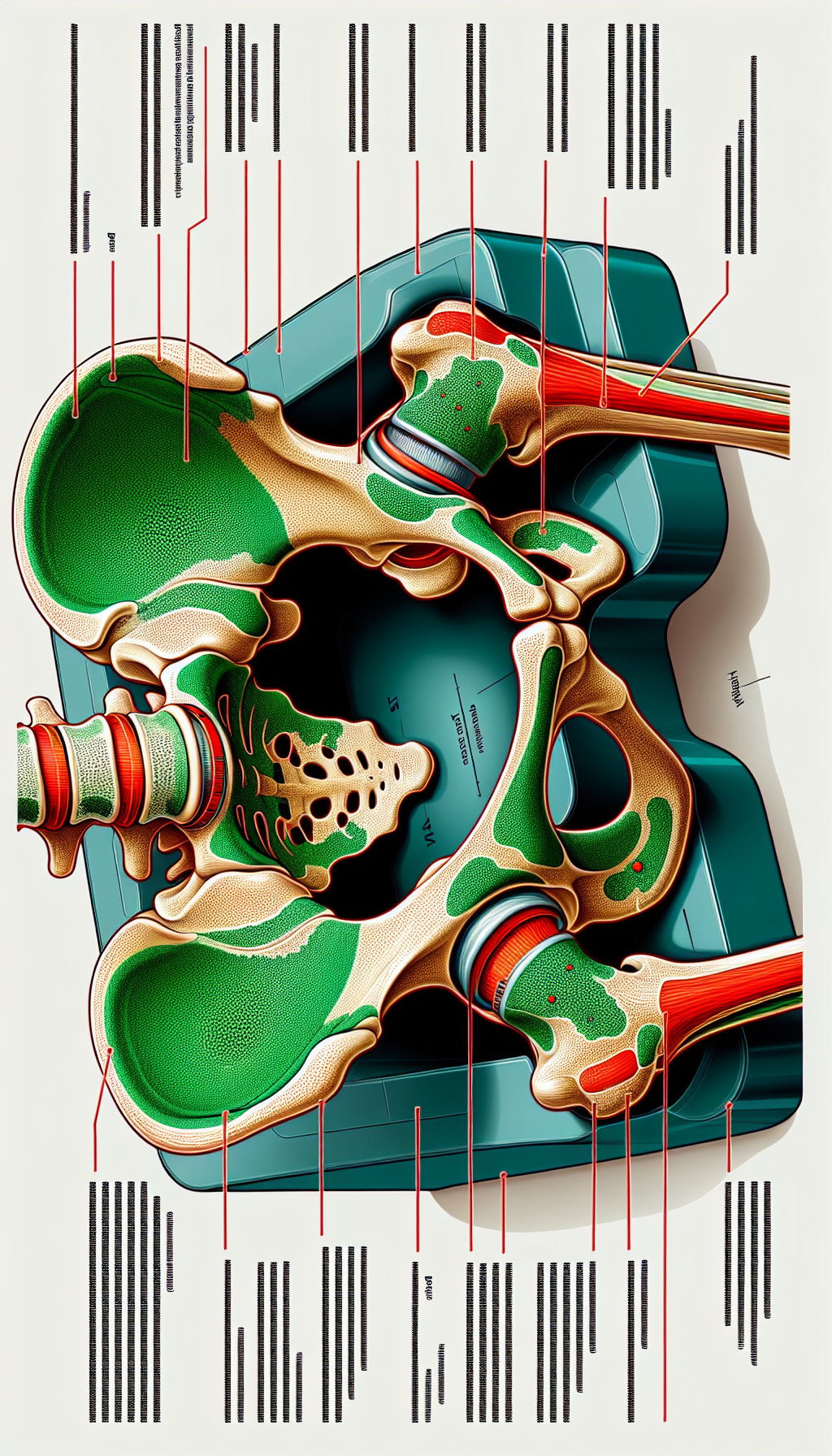Bone density is a term that refers to the amount of bone mineral in bone tissue. The greater the bone density, the stronger the bone. As we age, maintaining bone density is crucial for overall health and mobility. This article explores the importance of bone density, factors that affect it, and ways to preserve and enhance it through lifestyle choices and medical interventions.
Understanding Bone Density
Bones are living tissues that constantly break down and rebuild. Bone density peaks in early adulthood and then can begin to decline as part of the natural aging process. This decline can lead to conditions such as osteoporosis, which makes bones fragile and more susceptible to fractures. It is essential to understand how to maintain bone density to prevent such conditions.
Factors Affecting Bone Health
Several factors can influence bone density. Genetics play a role in determining bone mass and strength. Additionally, lifestyle choices such as diet and exercise have a significant impact. Certain medical conditions and medications can also affect bone health. For instance, managing bone health with age becomes increasingly important as hormonal changes can affect bone density.
Diet and Nutrition for Bone Health
The right nutrition is fundamental for maintaining bone density. Calcium and vitamin D are well-known nutrients essential for bone health. However, there are other important nutrients like magnesium and phosphorus that contribute to strong bones. To maximize calcium absorption for bone strength, it is crucial to balance it with other minerals (Maximizing Calcium Absorption for Bone Strength).
Exercise and Bone Density
Regular physical activity, particularly weight-bearing exercises, can help build and maintain bone density. Resistance training and activities that put stress on bones stimulate bone-forming cells and slow down bone loss. For more information on how exercise influences bone health, refer to The Relationship Between Muscles and Bones Health.
Avoiding Negative Lifestyle Factors
Certain lifestyle choices, like smoking and excessive alcohol consumption, can have detrimental effects on bone health. Smoking can interfere with calcium absorption, while heavy alcohol use can lead to bone loss. Understanding the effects of these habits is essential for maintaining healthy bones (The Effects of Smoking on Bone Health, Alcohol Consumption and Bone Health).
The Role of Medications and Supplements
Sometimes, diet and exercise might not be enough to maintain bone density, especially with conditions like osteoporosis. In these cases, medication and supplements can play a crucial role. It’s important to seek professional advice to understand what works best for individual needs, as discussed in Bone Health Supplements: What Works?.
Early Detection and Management of Bone Health Issues
Regular bone density tests can help detect issues early on. These tests are crucial for people at risk of osteoporosis. Early detection allows for timely management of bone health issues, potentially reducing the risk of fractures and other complications.
Strategies for Recovering from Bone Injuries
When bone injuries occur, having a strategy for recovery is essential. This includes understanding the risks associated with bone fractures and the best ways to promote healing. Adequate nutrition, physical therapy, and sometimes surgery are part of a comprehensive recovery plan.
Maintaining Bone Density Throughout Life
Maintaining bone density is a lifelong endeavor. From childhood nutrition, which sets the foundation for long-term bone health, to combating bone density loss during menopause, every life stage requires a tailored approach to bone health.
Childhood Nutrition and Bone Health
Childhood is a critical period for bone development. Ensuring that children receive the right nutrients supports their long-term bone health. Parents should be aware of the long-term benefits of childhood nutrition on bone density as they guide their children’s dietary choices.
Menopause and Bone Density
For women, menopause is a period when bone density can decline rapidly due to hormonal changes. Strategies to combat this loss are vital for maintaining bone health during this stage of life. Hormone replacement therapy and other interventions can be considered as part of a comprehensive bone health strategy during menopause.
Conclusion
Bone density is a crucial component of overall health. By understanding the factors that affect bone density and implementing strategies to maintain it, individuals can reduce the risk of bone-related diseases and improve their quality of life. It is never too early or too late to start taking care of your bones.
For further reading, explore the comprehensive resources on bone health at Avix Health, and consult with healthcare professionals to tailor a bone health plan that works for you. Remember, healthy bones support a healthy body, and the choices you make today can have a lasting impact on your bone health for years to come.



